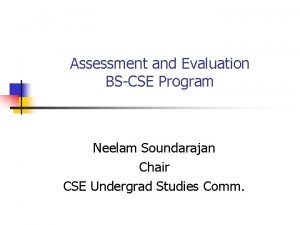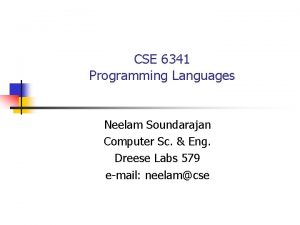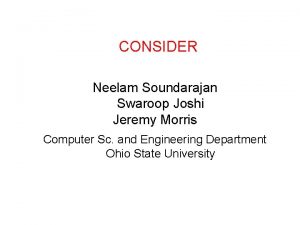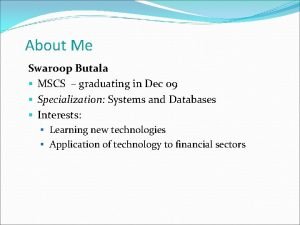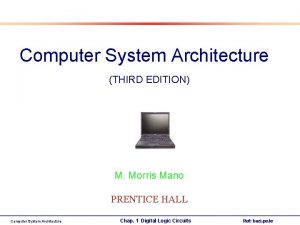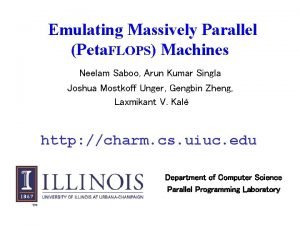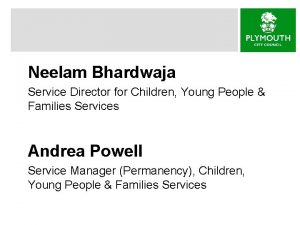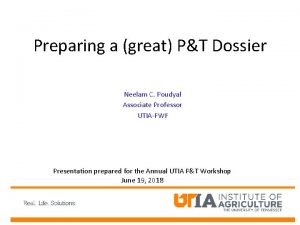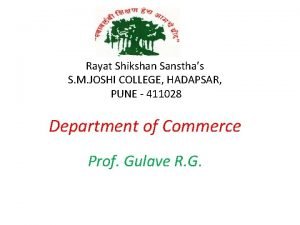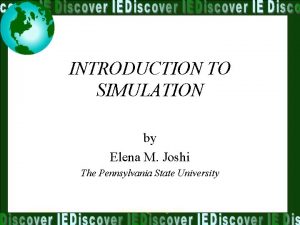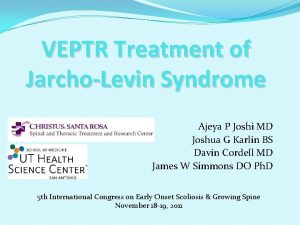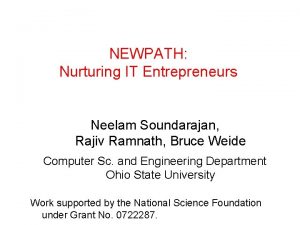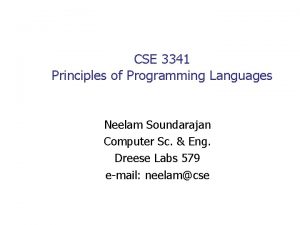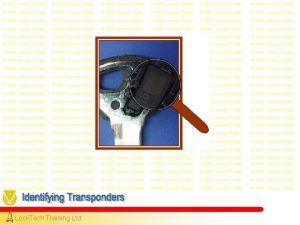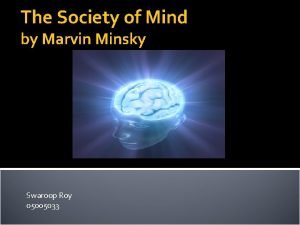CONSIDER Neelam Soundarajan Swaroop Joshi Jeremy Morris Computer














- Slides: 14

CONSIDER Neelam Soundarajan Swaroop Joshi Jeremy Morris Computer Sc. and Engineering Department Ohio State University

Motivation • Fact: People learn best when they discuss their ideas rather than hear a presentation • Fact: The most effective discussions are those among peers, not between students and instructors! • Fact: The most effective discussions are among small groups of peers who disagree with each other (about the topic) • Fact: Even if all the peers in the group start out with misconceptions, by the end of the discussion, many have them may have the correct conception! CONSIDER 2

But … • Classtime is limited so it is difficult to have serious, extended discussions in small groups in class; discussions outside class are difficult to organize … • Some students may dominate face-to-face discussions; other students, possibly ones with good ideas, may remain silent … • The discussions are ephemeral with no longterm record of how they evolved … CONSIDER 3

CONSIDER. . . a web app in which • Conflicting Student Ideas are Discussed, Evaluated, and Resolved (or Refuted!) • Phase 1: Individual students answer a question on the app • Phase 2: The instructor/app assigns students to anonymous groups of 4 -5 students each, ensuring that each group is made up of students with conflicting ideas • Anonymity: Students in each group will be named S 1, S 2, S 3, S 4, … CONSIDER 4

Phase 3: Heart of CONSIDER … • Phase 3: Students in each group, via anonymous posts, discuss their positions, trying to persuade the others in the group of the correctness of their own positions and pointing out relations between their own position and that of others • Phase 3 is organized as a series of rounds • Each round lasts 24 hours 5 CONSIDER

Phase 3 Rounds • During each round, each student can only see the posts from the previous (and earlier) rounds … posts from the current round, even if they have already been made, will not be visible until the round ends • In each round, each student is required to make one post in which he/she responds to the posts of each student from the previous round CONSIDER 6

Phase 3 Rounds (contd) • The student may freely edit his/her post until the end of the round (since no one else will see it until that point) • In the response, the student must not only state his/her current position but also state whether he/he agrees with, disagrees with, or is neutral (or unsure) about each of the previous round's posts, and why CONSIDER 7

… *including* his/her own post! • That is the whole point of the discussion! … when the student realizes why his/her previous position was flawed and accepts the position presented by one (or more) of the other students or arrives at a position that is a combination of his/her previous position and the other students' positions, chances are deep learning is taking place … • But won’t I lose points if I change my position? No! Really! CONSIDER 8

Phase 4: Summary Round • In the final round, each student makes a final submission consisting of: – His/her final answer to the original problem – A summary of how his/her answer changed over the course of the discussion and how the discussion helped (or not, as the case may be) arrive at his/her final answer • No penalty for changing your answer! … indeed, that is the whole point of the activity: developing deep understanding by discussing your idea with others who have different conceptions CONSIDER 9

After the discussion • After the final round, students will/should have access to all of the posts in the group including from the final (summary) round • Important: Arriving at a common, group answer is not a goal. That may happen but the goal is for each student to arrive at the best answer based on that student’s understanding • In other words, this is not a “team activity” in the normal sense … CONSIDER 10

More Information • CONSIDER tutorial: http: //go. osu. edu/consider-tutorial • More details: http: //web. cse. ohio-state. edu/~neelam/courses/online. Collab. Learning. html CONSIDER 11

More broadly … • But does it really work? • That is, do students who use CONSIDER really develop deeper understanding? • We are studying this question; and want to use data from our course. So you will get a "consent form" on your Carmen/Canvas account to allow us to use data from your classwork in this research • Important: The data will be completely anonymized before we use it in our research CONSIDER 12

Logistics • We will have a practice activity worth 10 points to familiarize you with the CONSIDER app • The practice activity will be a (hopefully) interesting question unrelated to our class • If have not yet completed the Google form providing me your Google id etc. , do so immediately after class CONSIDER 13

Timeline for CONSIDER practice activity • Practice activity assigned (on CONSIDER app): Monday, 3/19, by 5: 00 pm • Individual submissions due: Tuesday, 3/20, by 5: 00 pm • First round of discussion starts: Tuesday, 3/20, at 6: 00 pm • First round discussion ends: Wed. , 3/21, 6: 00 pm • Final submission due: Fri. , 3/23, 5: 00 pm CONSIDER 14
